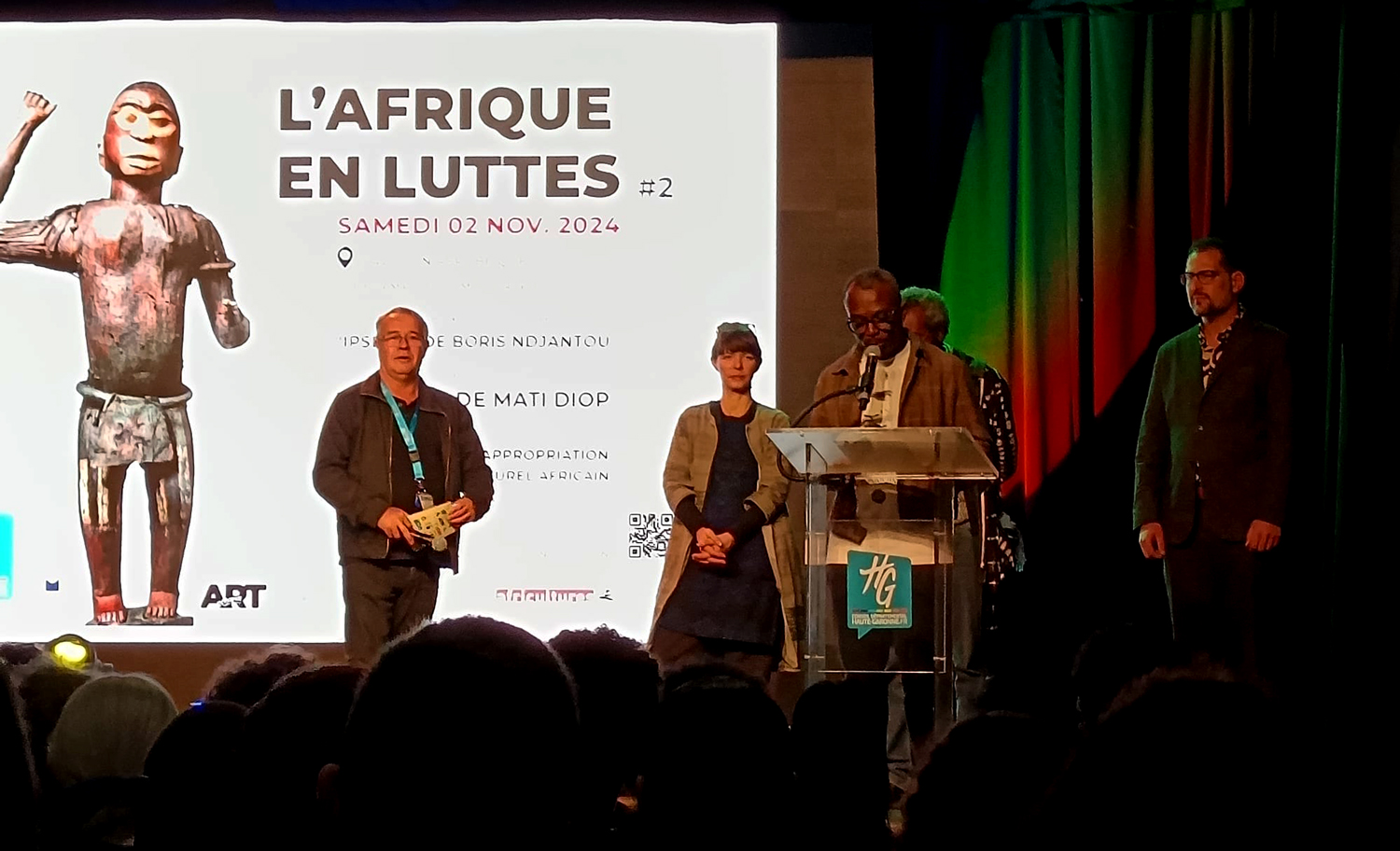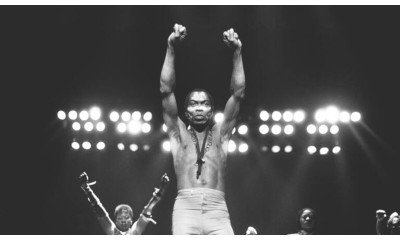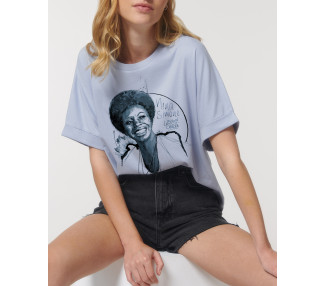A Big Thank You for United Souls' Exposure on TV5 Monde at the "Africa in Struggle" Event
Invited as part of the second edition of Africa in Struggle, an event I organize with ART Weapon, the Haute-Garonne Departmental Council as part of the Chemins de la République program, and with the support of United Souls, I had the honor of sharing the artistic and human mission of our clothing brand on TV5 Monde. I would like to extend my sincere thanks to Nidhya Paliakara, the news anchor, for offering me this valuable international visibility.
I am also very grateful to the entire team at TV5 Monde, especially Kalidou Sy, Editor-in-Chief of the Journal de l'Afrique, with whom I look forward to collaborating on his upcoming artistic projects.
Organizing this edition of Africa in Struggle was intense and time-consuming, yet incredibly rewarding. The encounters and discussions, particularly with my close friend, historian Amzat Boukari-Yabara, and sociologist and anthropologist Saskia Cousin Kouton, added exceptional depth to the event. I also want to recognize the professionalism of our master of ceremonies, David Crochet, Director of the association Chercheurs D’Autres, whose talent brought the event to life.
While awaiting the video recap on African cultural heritage preservation, I am pleased to share my opening speech for this second edition of Africa in Struggle. Thank you all for attending in such great numbers and supporting this cause.
See you very soon, and let the struggle continue!

Hello everyone,
To begin, on behalf of all the members of our association, I would like to express my gratitude to the Haute-Garonne Departmental Council for their invaluable support in bringing this evening to life. Their commitment to equality, fighting discrimination, social justice, and remembrance aligns perfectly with ART Weapon’s mission. This partnership has been essential in making this event possible.
We are delighted to welcome you tonight for the second edition of Africa in Struggle, organized in collaboration with the Haute-Garonne Departmental Council. I would also like to extend my sincere thanks to the entire Chemins de la République team for their cooperation and support in this shared journey.
ART Weapon was born out of a collaboration I shared with Claire Aranguren, my partner and the president of the association, who, after welcoming a new family member three months ago, is with us in spirit tonight. I would also like to thank Margot Dubois for her daily support, as well as director and artist Madani Touré, who enriches our audiovisual materials. A special acknowledgment goes to Boris Ndjantou, the artist behind the Ipséité exhibition, which marked the start of this new edition of Africa in Struggle.
I would also like to thank the friends and volunteers who accompany us at every step of this event and without whom this evening would not be possible.
This year, the theme of the restitution and reclaiming of African cultural heritage is a topic that deeply resonates with me. Originally from Côte d'Ivoire and living in France since 1984—first in Normandy, in Caen, and then in Toulouse for the past 15 years—I like to say that I’m “Ivorian-Norman” in the morning and “Ivorian-Occitan” in the afternoon.
During my schooling in the 1980s and 1990s, neither the French education system nor the broader culture met my need for self-identification. Like many people of African descent in my generation, I grew up with the feeling of being trapped behind a sort of mask, unable to fully express my identity in France—my Republic—echoing Frantz Fanon's concept of Black Skin, White Masks. I was searching for an identity that my environment didn’t provide.
Today, as a cultural actor here in Toulouse, I am thrilled to see the Departmental Council supporting spaces for reflection on memory, an essential pillar for building a plural identity that enriches our society and forms the foundation of a strong and inclusive nation. The restitution of artworks looted during our painful colonial past is a necessary step toward our shared ideals of reparation and recognition.
These pieces, torn from colonized peoples, held far more significance than mere art objects. They possessed a spiritual and mythical essence and played a central role in communication with the divine and the worship of kings. Taking them from their people was, in a sense, taking a part of their soul. Thus, restitution is not just about returning objects; it is an act of reparation, a path to healing wounded souls.
In line with the concept of social therapy advocated by Frantz Fanon, whose centenary we will celebrate in 2025, this process of restitution contributes to easing the inherited suffering of the colonial past. Thank you all for being here for this new edition of Africa in Struggle.
Tonight, this collective “therapy” will begin with the screening of the film Dahomey by Mati Diop, followed by a panel discussion featuring historian Amzat Boukari-Yabara, anthropologist Saskia Cousin, and artist and friend Boris Ndjantou. The debate will be moderated by David Crochet, Director of the Chercheurs D’Autres association.
Thank you.





